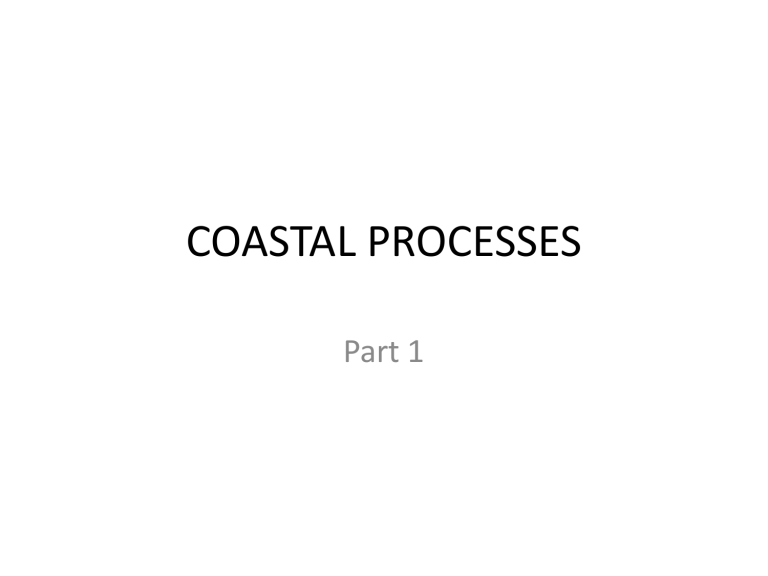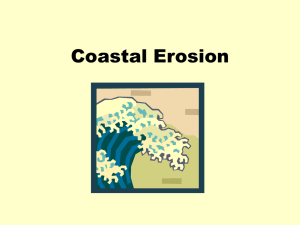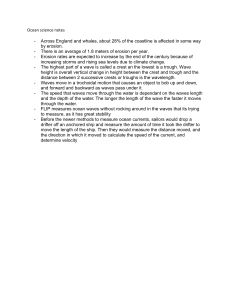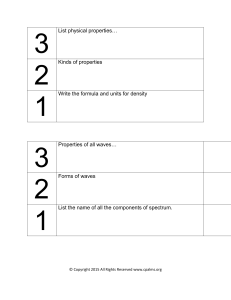
COASTAL PROCESSES Part 1 LESSON OBJECTIVES: By the end of the lesson, students should be able to : (i) Identify the ways waves apply their energy. (ii) Describe the coastal erosional processes. THE ENERGY OF WAVES Waves posses a great deal of energy . The energy of waves can be applied in three (3) ways .The ways are : • Erosion • Transportation • Deposition IMAGE OF COASTAL EROSION IMAGE OF COASTAL EROSION IMAGE OF COASTAL EROSION Erosion by waves Erosion is the wearing away of the coast by the action of waves. There are four (4) ways or processes of wave erosion .They are: Hydraulic Action: As a wave breaks against a cliff, it traps air that is compressed into cracks in the rock, causing blocks to be loosened and broken away over time. Corrasion or Abrasion: The moving water bombards the cliff with rock fragments (sand, pebbles, and boulders) and drags others backwards and forwards over rock surfaces, wearing them away. This is a very powerful type of erosion, especially during storms. Erosion by waves Corrosion (solution): The sea water dissolves soluble materials from the rock .This happens along limestone and chalk coasts when calcium carbonate is dissolved. Attrition: Rocks and boulders already eroded from the coast are knocked together, and slowly worn into smaller and rounder pieces. Boulders with rough surface become smooth through the process of attrition. NB: The more powerful waves, the more energy they have. The softer the rock, the faster erosion will be. END OF PRESENTATION THANK YOU HOMEWORK 14-09-2022 (1) Identify the 3 ways waves apply their energy. [3] (2) Describe the following processes of wave erosion: (a) Hydraulic Action [3] (b) Abrasion [3] (3) State another term for ‘Abrasion’ [1]



